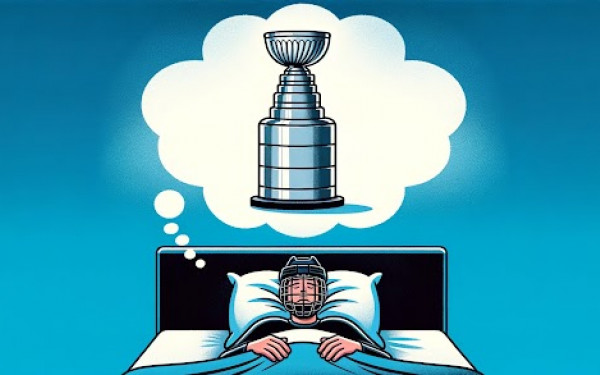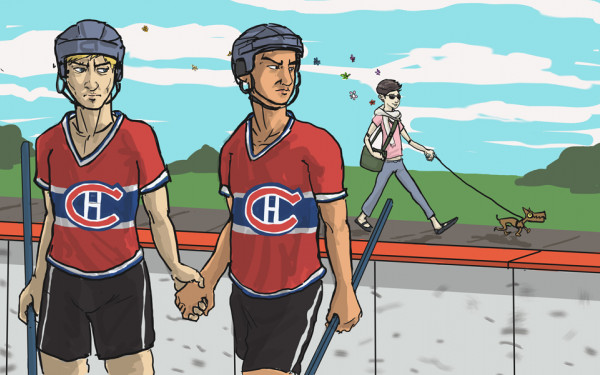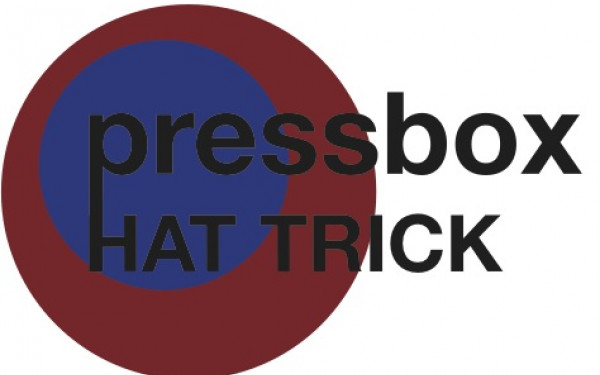Hockey Needs to Stop Hiding Behind “Apolitical” Behaviour
The NHL Lags Behind When it Comes to the Right to Protest
While the world of sports saw its athletes taking a stand—or rather a knee—for their beliefs and their rights this past week, one of North America’s major sports stayed relatively quiet.
After Donald Trump called for athletes who took a knee to be fired, referring to one who would dare to exercise his right to protest a “son of a bitch,” responses started flooding out from the NFL and the NBA. Many took to twitter, using their platform as popular athletes to voice their displeasure with the president and the state of the country.
In the NFL, an unprecedented number of players followed the example of Colin Kaepernick and knelt during the national anthem to protest racial injustice in America. Teams like the Seattle Seahawks and the Pittsburgh Steelers did not leave their locker rooms while the national anthem played. Where was the NHL in all of this?
On the same day that so many organizations chose to stand together in solidarity for their right to protest, the Stanley cup winning Pittsburgh Penguins decided to announce they would be visiting the White House to celebrate their Stanley Cup victory.
The sports world was floored that the team managed to be tone deaf enough to not only make this decision, but announce it the same day that so many NFL teams would actively be protesting as a result of Donald Trump’s actions.
As CBC reported, the Penguins insist that it’s not a political statement that they are making: “We haven’t taken any stance. The Penguins, as an organization and our players, have chosen not to use this platform to take a stance,” said head coach Mike Sullivan.
The face of the NHL and Penguins’ captain, Sidney Crosby, sang a similar tune. “I support it. It’s a great honour for us to be invited there,” said the two-time playoff MVP, suggesting that people should not read into it anymore than that.
The problem is that this time, it is more than accepting an invitation. Not taking a stance here is a stance in and of itself.
It did not take long for Trump to hail the penguins as an incredible team. They chose to accept his invitation as an honour, these athletes couldn’t be sons of bitches. These athletes stuck to sports and did not make waves. They did just as Trump and NHL commissioner Gary Bettman wanted.
“When they’re showing up for work to participate in a game that people are focused on, care about, pay a lot of money to attend, then it should be all about the game,” said Bettman when asked about players protesting or using their platform to speak about social issues, “That block of time should be apolitical.”
“Apolitical,” another way of saying “stick to sports, you are a player and we do not want to hear what you have to say.”
The NHL has always been a more conservative league. Players showing too much personality or being outspoken have often been criticized or punished.
Just last year at the start of Kaepernick’s kneeling protest, head coach of the Columbus Blue Jackets, John Tortorella, made sure to let the media know that any player of his who sat during the anthem would spend the rest of the game on the bench. Tortorella was prepared to sacrifice a chance at victory for his country should a player exercise their right to protest and free speech.
When a player dares to step out of line and express their beliefs, the reaction is shocking. Tampa Bay Lightning forward JT Brown spoke out about his respect for those kneeling, only to be met online by fans threatening him with physical violence and accusing him of ruining hockey.
For some reason, any sign of protest or attempts to start a discussion on social issues are being look at as an insult to some. For JT Brown, that commentary came from fans but earlier this week, a surprising voice came out and put down the idea of protesting as well.
PK Subban, one of the NHL’s more outspoken players, said that would never kneel during the anthem because he respected the American flag far too much. Subban was not asked about this but brought it up himself at an event. Subban’s comments continue the trend of implying, or in other cases, outright stating, that the people who are kneeling are disrespecting America or its flag.
With this, Subban did not just say that he would not be kneeling. He did not make room for a real conversation about the protest or the issue it concerns. The comments insult those athletes who do choose to protest and don’t just signal that Subban disagrees with what they are doing but thinks that them expressing their rights is disrespectful to the fabric of their country.
Players who come out and speak about protesting or kneeling as disrespectful to the flag and armed forces, or players that talk about the honour of visiting Donald Trump are not simply staying neutral in the matter because they say they do not want to wade into politics. Hiding behind this veil of “apolitical” behaviour is active passivity.
Whether an athlete chooses to kneel or not, coming out and speaking against those who choose to exercise that right is a stance. It is a stance that empowers people like Donald Trump.
It empowers those who want athletes to stay quiet in the face of racial injustice that they wish to stand against. It tells players that they cannot use their rights to give their platform a meaning beyond their sport and share their values with the world.
The NHL needs to stop pretending that its neutrality is not taking a stance. Some seem to understand that. “It’s the first amendment to our constitution…regardless of how it makes you feel individually, these are literally the principles the U.S was founded on, come on Mr. President” tweeted American born captain of the Winnipeg Jets, Blake Wheeler.
When asked about his comments, Wheeler had a simple reply: “It just felt right to take a stance.”

_900_599_90.jpg)



